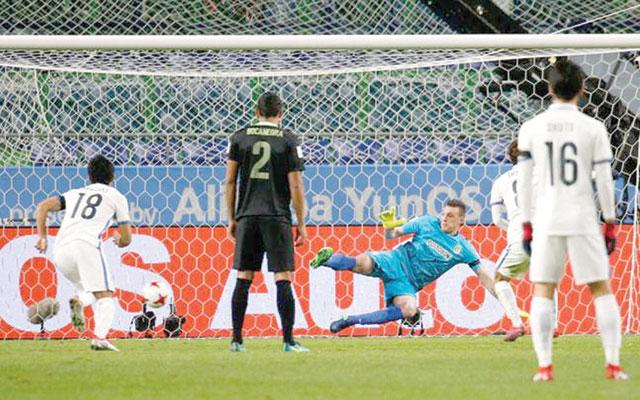You are here
Sun shines on game but not everything in garden is rosy
By Reuters - Jul 16,2014 - Last updated at Jul 16,2014
RIO DE JANEIRO — After putting on what was widely considered the best-ever World Cup in terms of entertainment FIFA is unlikely to make wholesale changes to the way the game is played but at the professional level some issues need addressing.
Football’s authorities are proud of the fact that football’s 17 laws have remained fundamentally unchanged for over 100 years but, in reality, there have been regular adjustments and shifts of emphasis that have altered many aspects of the game.
The definition of foul play is the same now as it was in 1950 yet tackles that were considered part and parcel of the game then would be immediately penalised now and perhaps draw a yellow or red card — innovations introduced in 1970.
The offside law was once black and white, routinely explained to the uninitiated with salt and pepper pots.
Now there is a whole “active” element to benefit the attacking side that means even experts and pundits can disagree over whether a player is on or off.
The latest innovation to make its World Cup debut in Brazil was goalline technology.
In use without any problems in England’s Premier League last season, this advance has few opponents despite FIFA dragging its heels for so long before England midfielder Frank Lampard’s laughably disallowed goal against Germany four years ago finally forced their hand.
Next level
Some observers are now talking about the next level of technological interference — the use of TV replays to aid the match officials, particularly in the case of offside.
In general, replays do a great job of highlighting just how superbly efficient linesmen are when it comes to offside decisions, despite the routine howls of protest from players and fans when they go against them.
Opponents claim the wait for a replay decision would “slow the game down” but for a tournament like the World Cup, with cameras and replays available in an instant, it would make little time difference if decisions were routinely reviewed, as in rugby.
FIFA President Sepp Blatter opened this World Cup by floating the idea of each team having two or three “challenges”, as in cricket, where the tension of awaiting the outcome on the big screens has become part and parcel of the fan experience.
That is unlikely to come about soon, but one area the game’s overseers do need to address is how and why referees have decided to allow a virtual wrestling free-for-all at every corner and free kick.
When Brazil’s Fred tumbled to the ground after feeling the slight presence of the hand of Croatia’s Dejan Lovren in the tournament’s opening game, supporters of the striker claimed he was fully entitled to fall over because “there was contact”.
Yet at corners defenders have no compunction about wrapping both arms around an attacker, gripping his arm or virtually tearing the shirt off his back, safe in the knowledge that nothing will be done.
Referees routinely delay the taking of a kick to hand out a stern lecture and then do absolutely nothing when the players ignore him seconds later. Not one penalty was awarded for such an offence that, if carried out on the halfway line, would earn a certain booking.
Unenviable task
The referees have no excuse for ignoring this behaviour, even if there seems to be a tacit agreement not to penalise it, but when it comes to diving and “simulation” they have an unenviable task.
Arjen Robben was roundly abused for diving to gain the last-gasp penalty that gave the Netherlands a 2-1 win over Mexico in the second round yet his supporters said he had every right to fall over the outstretched leg of Rafa Marquez.
During the third-place play-off Brazil midfielder Oscar suffered the ignominy of becoming the only player in all 64 matches to be booked for diving.
He was outraged as his leg was eventually clearly taken from under him but that happened only because he had dragged it beneath him in an unnatural gait, which is adopted by some players inside the area in an attempt to “win” a penalty.
It was an important action by Algerian referee Djamel Haimoudi, showing that officials are not always going to be hoodwinked by what is now a widespread “technique” and one that brings outrage to the vast majority of watching fans.
FIFA and national federations need to support their match officials in the continuing fight against underhand methods, which is the latest evolution in the game that never changes.
Related Articles
OSAKA — Video evidence was used to award a penalty for the first time in a FIFA competition at the Club World Cup on Wednesday when the refe
Was it a goal, or wasn’t it? The question shouldn’t need to be debated in the next five weeks in Brazil, where goal-line technology will be used for the first time in a World Cup.
Video evidence should be used to punish footballers who dive, fake injuries or waste time, FIFA President Sepp Blatter said on Friday.















